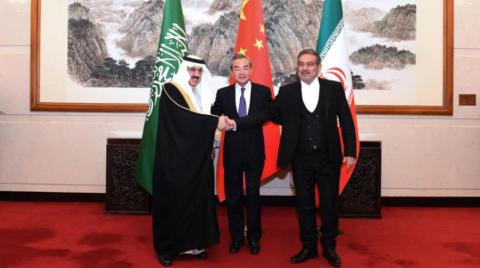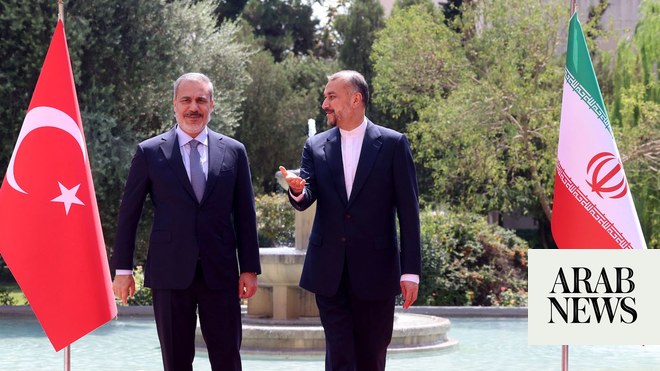
Iranian Foreign Ministry welcomed the statement issued at the 155th GCC Ministerial Council on the resumption of relations between Saudi Arabia and Iran.
Spokesman Nasser Kanaani expressed his country's aspirations for the agreement to be influential in promoting peace and stability in the region.
Saudi Arabia and Iran announced earlier this month that they had agreed to resume diplomatic relations and reopen the embassies within a maximum of two months.
On Tuesday, the GCC Ministerial Council held a meeting at the headquarters of the General Secretariat. The meeting welcomed the agreement, under the auspices of China, to resume Saudi-Iranian diplomatic relations.
The Council hoped the agreement would be a positive step for resolving differences and ending all regional conflicts through dialogue and diplomacy.
It also aimed to establish relations between countries based on understanding, mutual respect, good neighborliness, respect for sovereignty, non-interference in internal affairs, and adherence to the United Nations and the Organization of Islamic Cooperation's charters and international laws and norms.
Kanaani appreciated China for supporting and hosting the process and Iraq and Oman for their effective measures toward resuming political relations between the countries.
He said the support of regional countries for this agreement indicates the neighbors' determination to promote diplomatic initiatives at the regional level.
Kanaani pointed out that Tehran considers interaction and cooperation with its neighbors as the best way to solve regional problems and welcomes positive initiatives in developing relations based on good neighborliness and international principles and rules.
However, Kanaani said the three Iranian islands of Abu Musa, the Greater Tunb, and the Lesser Tunb were an integral and eternal part of the territory of Iran.
The Iranian statement rejected the Ministerial Council's affirmation of the importance of Iran's commitment not to exceed the rate of uranium enrichment for peaceful uses and the need to fulfill its obligations and fully cooperate with the International Atomic Energy Agency (IAEA).
The Council also stressed the need for the Gulf states to participate in all regional and international negotiations, discussions, and meetings.
The Iranian Foreign Ministry said Tehran knew its international responsibilities and obligations and has always adhered to the treaties. Regarding the Joint Comprehensive Plan of Action (JCPOA), it interacts and communicates with the relevant parties in the technical and political frameworks related to this agreement."





